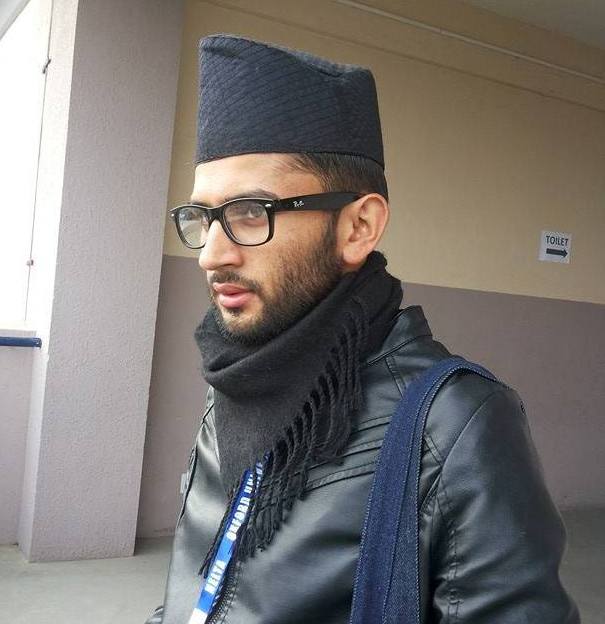Deepak Dulal, Master Second year
Mahendra Ratna Campus , Tahachal , Kathmandu
Attending the twentieth international conference of English Language Teaching (ELT) last month was my first ever experience. I cannot help myself expressing immense pleasure to be a part as a participant in the mega event.
Like in the past years, it was the 20th time that NELTA organized the annual international conference that in Kathmandu. This year, the conference was held at DAV Sushil Kedia Vishwa Bharati Higher Secondary School, Lalitpur, Nepal on Feb 17, 18 and 19.And, the theme of the conference this year was “The Quest for Quality ELT: Riding the Waves and Creating the Landscape”.
In addition to the key note speeches, I attended in 10 plenary sessions, which included ‘whose woods are these….? By Vishnu S. Rai-postmodern ELT; Neuro ELT by Marc Helgessen; Teaching, Learning and Context by David Hayes; Tapping into the good learners in all of us by Elka Todevais writing colorless green ideas sleeping furiously together? by Abhi Subedi; Enriching linguistic and communicative competence through literature by Z.N. Patil; Learners autonomy in large class through innovative project-based learning by Ganga Gautam and Zakia Sarwara; From mimic men to global citizens, interpreting EFL from post-colonial and post-modern perspectives by Sanjeev Uprety; No just Action: Blend Activities with content by Laxman Gnawali and Whose Waves and for What quality; Non-Western philosophies for professional development in ELT by Balkrishna Sharma. All the ten sessions I attended were interesting and insightful. However, I found the three sessions quite interesting. Firstly, Marc Helgesen widely talked of learners need, interest and their neurological science in learning language. Secondly, Ganga Gautam and Zakia Sarwara talked about learners’ autonomy in learning, which I found most interesting and greatly useful. They presented free writing or project-Based learning strategies methods and their findings. The third, Laxman Gnawali talked about the flipside of communicative teaching method in language teaching and he also provided the solutions. He argued that communicative method followed by English teachers in Nepal hardly focuses on content.
Likewise, the two panel discussions I attended during the conference were impactful on participants. The first discussion moderated by Dr. Laxman Gnawali was about the role of literature in proficiency development of English language and panelists were Professors Abhi Subedi, Vishnu singh Rai and Tej Ratna Kanskar. The second discussion with panelists Jai Raj Awasthi from Nepal, Zakia Sarwara from Pakistan and Z N Patil from India were on ‘policy issues on ELT’, and it was moderated by Bal Krishna Sharma. They largely discussed on ELT issues and policies on ELT in the contexts of three neighboring countries.
Out of total 161 concurrent sessions in the three-day conference, I attended Flipping the classroom by Christina Torres (USA); Learners autonomy in ESL teaching by Faisal Naseer(Pakistan); Errors correction techniques in ELT by Jagdish Poudel (Nepal), Continuous Assessment to increase motivation by Soniya Urfat Urmee (Bangladesh); Active, independent and lifelong English language learning(part-i) by Umer Farooq (Pakistan); Story writing through a creative fun game by Umes Shrestha(Nepal); look ma: I did it-Reclaiming the joy of learning by Elka Todeva (USA); Working with teachers in the Quest for Quality ELT, Understanding and controlling our experience by David Hayes(UK); Collaborative Approaches to writing effectively in a large class by Chiranjivi Sharma(Nepal) and lastly New media technology for ELT: what and how, by Praveen Kumar Yadav (Nepal). I found each session with own importance and value. Mostly importantly, I came to know that language (English) teaching and learning has wider perspectives of issues and challenges. I learnt about different innovations and investigations in the field of ELT from different countries. Most of the presentations focused on how to teach effectively.
Another interesting session was interactive language fair session, which was coordinated by Dr. Laxman Gnawali. For the fair, 18 presenters stood with their stalls and explained the visitors about their presentation stuffs. I found it most effective session among all sessions, wherein I had an opportunity to meet talk and share our experience face-to-face with the presenters and participants.
As an ELT practitioner, while attending on this mega event I learnt about wide range of ELT issues focusing on diversified areas covering alternative assessment, leaning outcomes and teaching effectiveness, ICT in ELT, creative writing, critical thinking, academic writing, critical thinking, teacher professional development, literacy in EFL, literature in pedagogy, mother tongue education and EFL, multilingualism, trends and research in EFL, new media in ELT, and fun games in ELT. The conference was a get-together of English language teachers, I was able to meet many of them including Dr. Laxman Gnyawali, Ganga Gautam, Rishi Rijal , Balram Adhikari , Umes-Shrestha and Praveen Kumar Yadav. For me, it was also a networking event, I met many of the participants from Nepal and other 16 different countries for the first time and exchanged our experiences and email addresses with a hope to become friends to do the same in future.
Acknowledgment:
I am indebted to the support of our teacher Miriam Corneli from the US, English Language Fellow for Nepal, who I believe is a great ELT scholar. I was one among ten M. Ed. students from MRC Tahachal Campus, who Corneli sponsored for the participation. Through essay writing contest, the ten of us were selected for the reward and the opportunity to attend the conference.
